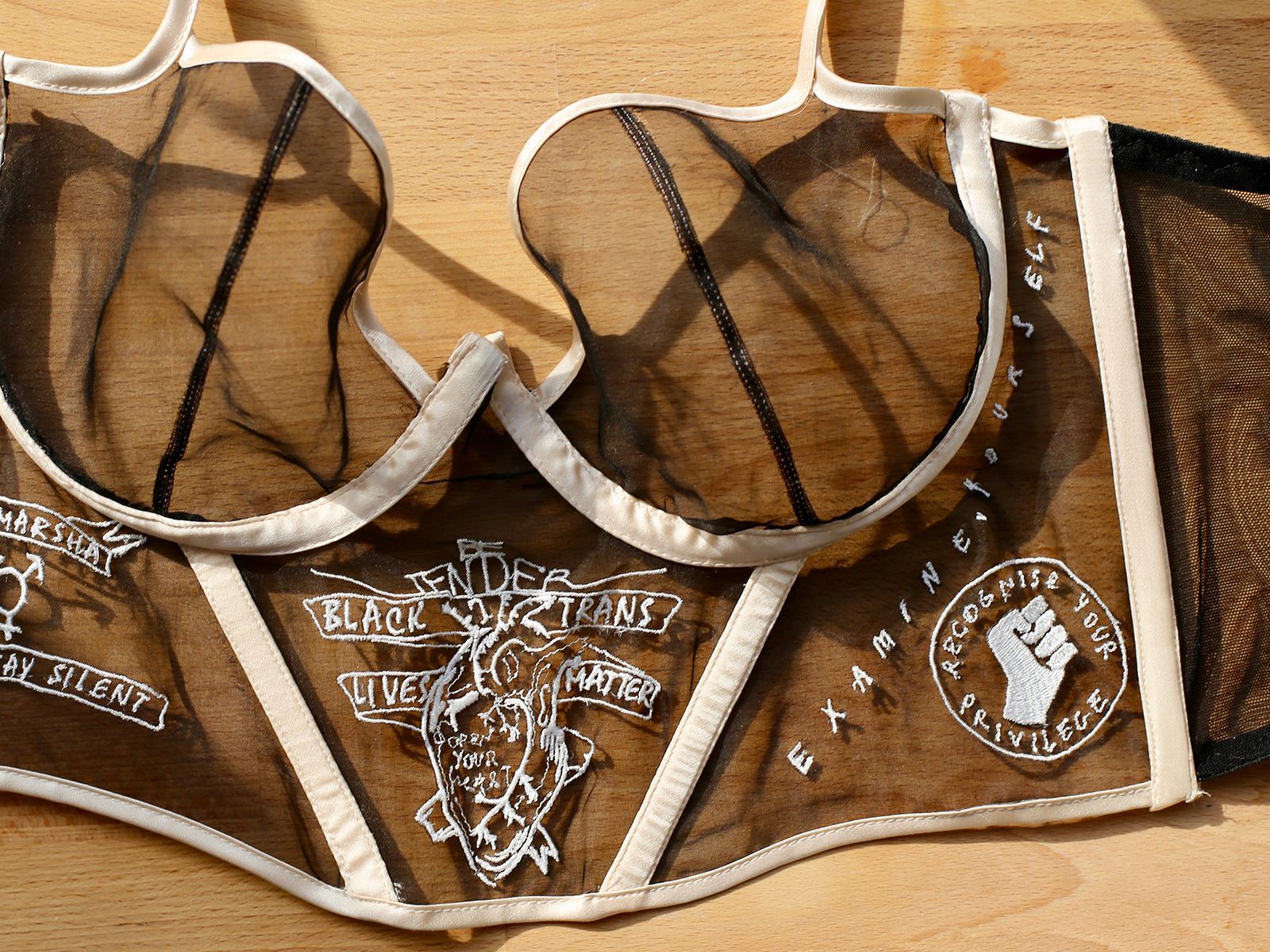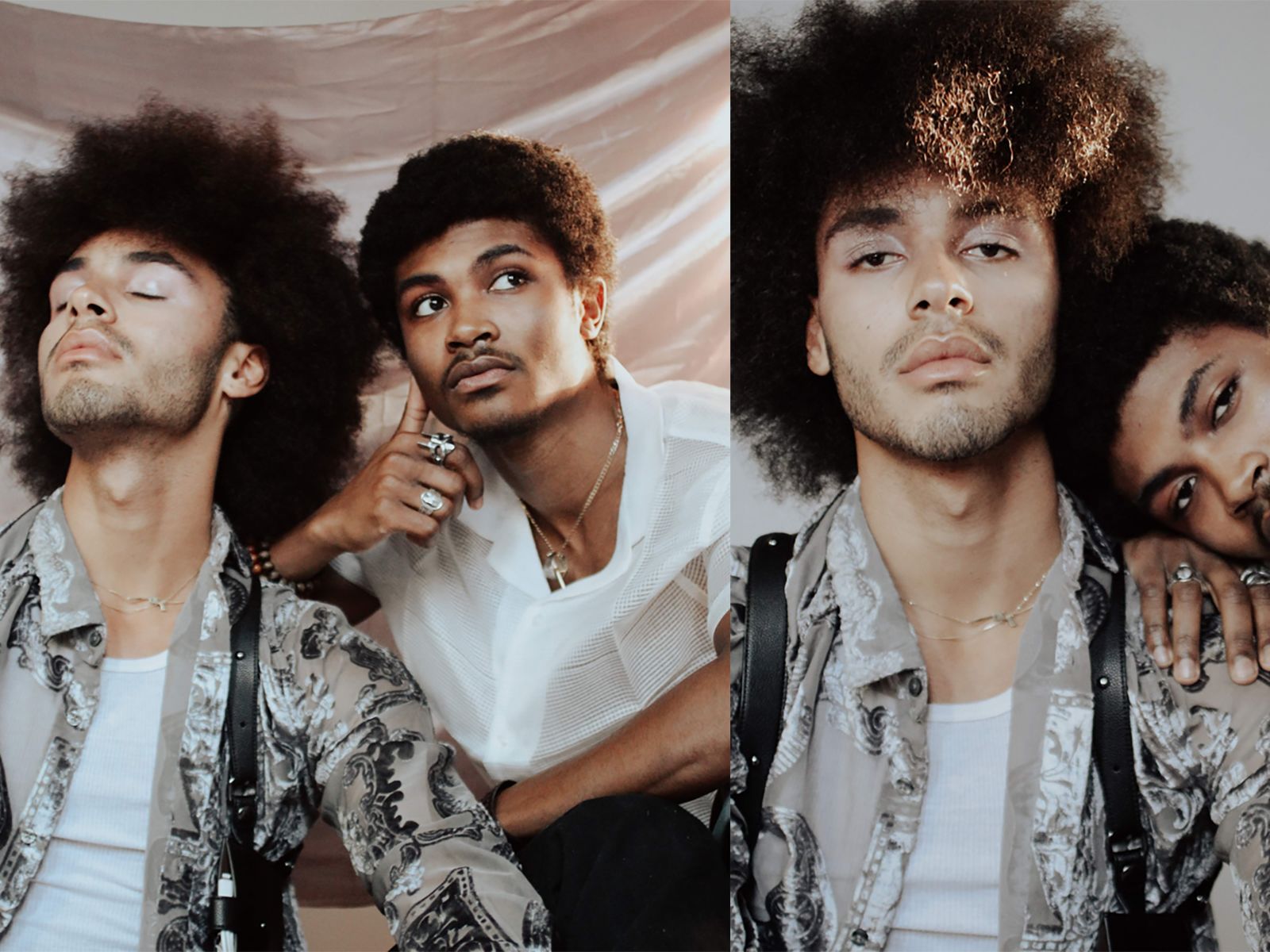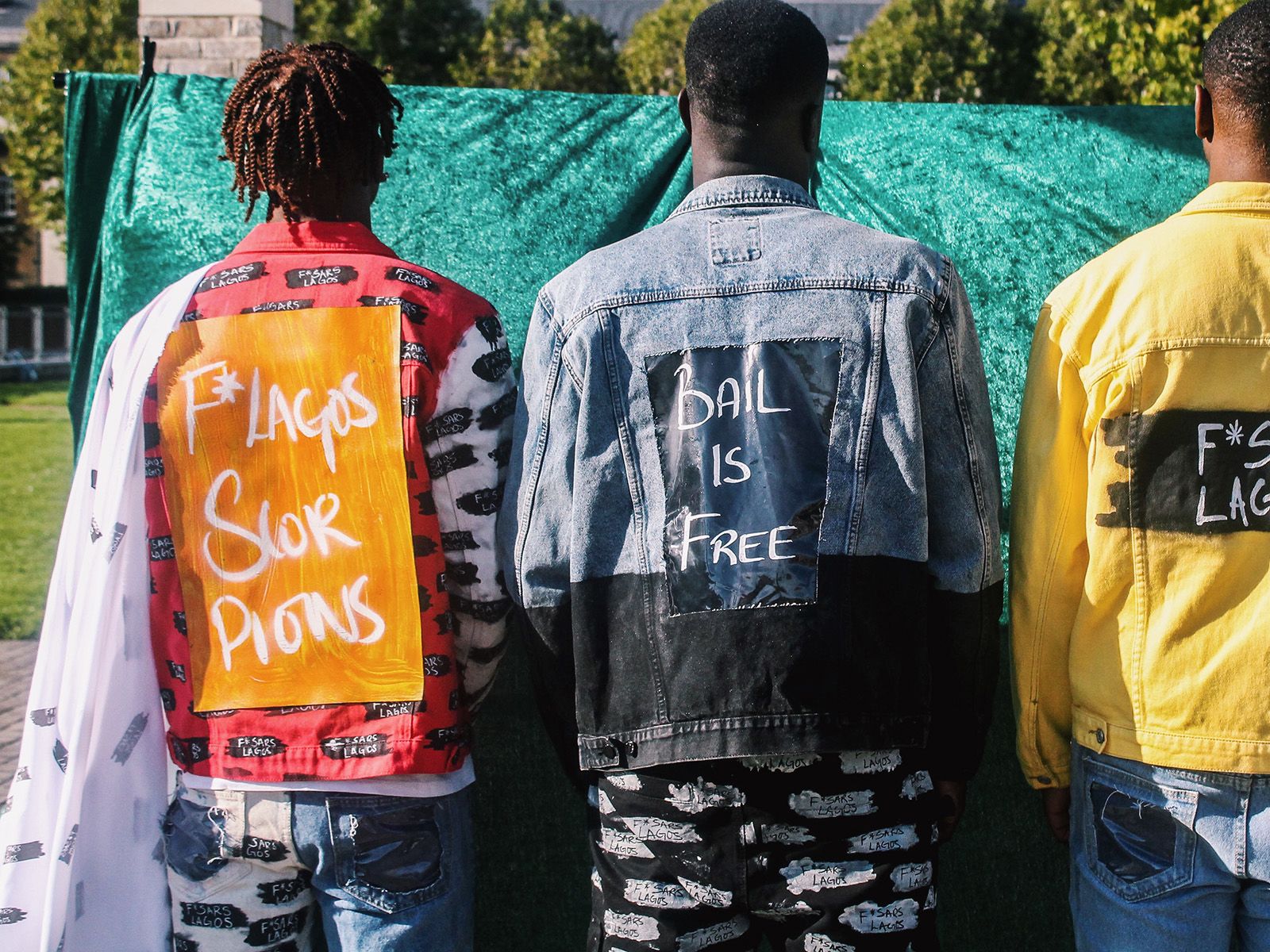
Black History Month 2021: Roisin Cummins in conversation with Taneesha Thakrar

- Written byRóisín Cummins
- Published date 01 October 2021

As part of LCF's Black History Month celebrations, we wanted to create a space and platform for students and alumni to have open and frank conversations around their experiences at LCF and within the fashion industry, through a series of 'in conversations' with LCF BA (Hons) Fashion Design and Technology: Womenswear alumna, Róisín Cummins.
Róisín showcased her final collection in the #LCF19 show and has since continued to use her creative ideas as a voice for change, and has worked with LCF on a variety of projects. In the first of three stories, Rosin is in conversation with Taneesha Thakrar, a BA (Hons) Fashion Design and Development graduate, discussing inspiration, activism and the changes needed to create a more inclusive educational environment.
So, Taneesha tell us about yourself and what you represent?
I am a third generation Black British Woman of Caribbean, African, Indian and Portuguese descent. I am from south east England and I represent the 11% ethnic minority from Hampshire. I represent what I was and what I am - the only little black girl in the class, the black child embarrassed by their heritage because they’re surrounded by white people, the only black girl in the school, the only black person in the workplace. I represent a voice for the 11% amongst a 89% white population.
You are currently studying Fashion Design Development. What made you choose this course and why?
In 2019 I studied BA (Hons) Fashion Design at another University. I really disliked their course because it was quite structured, the development part of the course was really rushed and I enjoyed design more than production. The course didn’t allow me to express myself fully through my design work. I knew I needed to be doing a course that didn’t suppress my creativity and allowed me to explore ideas and subjects in depth to expand my knowledge and enable my inspiration. This is why I chose BA (Hons) Fashion Design and Development at LCF, I have been able to reach my full potential on this course.
Where does your inspiration come from when it comes to your design work?
In recent years, I found it hard to be inspired by anything other than black history and black culture. So much is untold, overlooked and buried but our stories, past and present should be highlighted and embraced. It’s time to talk about how black culture and history have impacted society and still do today. My design work is based on the project and dialogue I’m working with, the most recent looked at UK police brutality, institutionalised racism and unconscious bias in the UK policing system. The concept was a uniform rebrand designed to reduce the misuse of authority and abuse of power to lessen the risk of discriminatory practices and raise awareness for these issues.
I have seen on your social media that you're a racial injustice fashion activist and we all know how important it is to bring attention to this. What does it mean for you and how has it changed your view on the fashion industry?
As a black child growing up in a predominantly white area of the country, my views on being black were extremely ignorant. I felt uncomfortable learning about slavery - it’s the only thing school would teach us and that Nelson Mandela was South Africa’s first black president (not his civil rights work.) I learned more at home than school, as expected with two black parents. Those two topics were the only things I learned in my whole schooling period. I would get angry and embarrassed at my mum telling my primary school to do something for black history month.
As a child racial slurs would just go over my head because I was so oblivious to my own culture. My white best friend would be the one to tell on other kids being racist because I felt too awkward to speak to the teachers about it. It wasn’t until I started college that I embraced my heritage and that was due to my white college lecturer helping me to do so. She made me feel comfortable as she knew so much more about black culture and history than I even knew existed. She had introduced me to Lorna Simpson's work and it opened up a whole new world to me, full of black artists and designers who embraced being black and I could aspire to be like them. This is why I want to inspire others to feel confident about their heritage and understand that there is so much more to being black than slavery.

Do you think it's harder to be a black woman in fashion?
Yes! There are very few black women in powerful or executive positions in the industry and not only that, but the ratio of black female designers compared to white all through history is sad. It’s only in the past 5 years or so we are witnessing more black female designers and we are reclaiming and embracing our heritage. In every area of fashion there is a struggle for black Women. Black female models are just a token for an attempt to appear diverse and certainly have been the victims of structural racism in industry for decades.
What’s your general view of racism within the fashion industry today, do you think it is changing for the better?
I don’t think racism so much exists in fashion today, but I think there is still a lot of ignorance and generations of miseducation and it has led to unconscious mistakes that became the biggest modern controversies and scandals in industry. There definitely is some change happening when we look at people like Virgil Abloh with his successful partnership between Off-White and LVMH or Bianca Saunders being the first not only Black British but Black British female to be awarded the ANDAM award in Paris. Not only that but past Black Designers finally getting recognition and attention in contemporary exhibitions too. So there is some change happening but there’s still a long way to go.
In your opinion, what are the biggest difficulties the fashion industry faces in striving to become anti-racist?
I definitely think the biggest issue is the performance act in striving to be anti-racist. Look at every runway show, you will most definitely see a multi-cultural selection of models because that’s the only thing visible to the public majority and it’s all about performance, it’s a front. We know that behind the scenes there aren’t the same levels of diversity values being reciprocated in the industry production line.
Another common problem we face in the industry is the constant misconception between cultural appreciation and appropriation and this is where we see these two issues link together. When we’re taking ideas and techniques from other cultures we’re embracing what belongs to other people and their ancestry. We aren’t recognising that in order to appreciate we need to allow those cultures to have a voice and communicate their story through our work.
When you think of BHM, what comes to mind and how does that make you feel?
Something that is really important to me in my work is the communication of Black Britain past and present, we often only relate black history to America because we don’t know or weren’t taught or have forgotten real black history. We are part of many generations that have endured a misleading, whitewashed educational system that erased everything other than slavery in America. I’ve learned so much about black history through project research, there is so much more to our past then just slavery,

What does black representation and celebration within the industry look like to you? What changes are needed to create a more inclusive educational environment?
Jeremy Pope at the 2021 Met Gala, Patrick Kelly reclaiming blackface, Virgil Abloh as LV’s Creative Director and Wales Bonner embracing and incorporating her heritage into her products and brand. That is black representation and celebration to me. When I saw Jeremy Pope in 100% cotton at the Met Gala I felt so inspired, so proud, excited, and stunned, it was exactly what I wanted to see from this years Met Gala theme. American fashion built on the foundation of enslaved Africans picking cotton on plantations, his tribute was the perfect example of black representation and celebration and appreciation for our history and our ancestors. I think that it’s just time to be realistic about the role black people have played in fashion and the influences we still have today. The influence of black talent should be taught in schools and higher education, based on the specialism, I firmly believe change begins with every new generation, they are the only way to create an open-minded, equal society.
Do you have any advice for people who are thinking about going into design/the arts that are maybe a little intimidated because they are black or from another marginalised group?
You undoubtedly need to be aware of your identity, it’s so important to know what’s happening for your race, sexuality, age etc in the industry. Be aware of the success and struggles past and present that relate to your individuality, you can learn and see what’s being accomplished from others like you. It can definitely be super empowering and motivating. While the industry is changing for the better, racism and ignorance will always exist, so be prepared to experience those things but don’t let it define your passion or talent.
Where do you see yourself and your art 5 years down the line, what doors would you like to see open not only for yourself but within the industry?
I think, within the industry I would like to see more doors open for minorities behind the scenes. A lot of the time in fashion we get a culturally diverse runway but, the team and brand involved with getting products ready for runway is the furthest thing from being inclusive.
I want my work to have purpose and meaning whether that be through educating and inspiring others or creative protest. I would like to be able to work with black charities and publications like ‘CoCo Girl Magazine’ ‘BLM’ or the ‘Black Cultural Archives Museum’ to positively influence and cultivate the younger generation, help raise awareness and fight against ongoing issues of inequality and injustice, as well as having the creative power to tell our story through artistic direction.


